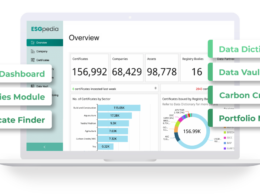Kyndryl, in partnership with Microsoft, has released the findings of the third annual Global Sustainability Barometer Study, indicating that organisations integrating sustainability into core business strategy — rather than treating it as a compliance exercise — are outperforming competitors across regions and industries.
The study, conducted by Ecosystm and based on responses from 1,286 enterprise leaders across 20 countries, suggests a marked shift towards embedding sustainability in decision-making, technology deployment and innovation planning.
Faith Taylor, Senior Vice President for Global Citizenship and Sustainability at Kyndryl, said the trend reflects a deeper connection between policy, people and technological capability.
“We’re seeing more leaders connect policy, people and purpose – embracing technological insights and agentic AI – to drive impact and not just report on sustainability,” she said.
AI and IT departments increasingly central to sustainability progress
According to the report, 78% of organisations identified as “integration-focused” view IT as a key enabler of sustainability goals, using data, automation and AI to deliver measurable results. The share of IT teams leading sustainability efforts beyond the IT function rose to 56%, up from 38% in 2024.
Microsoft’s Ricardo Davila said more organisations are leveraging AI not only to track sustainability metrics but to anticipate and respond to emerging challenges.
“More than half of leading organizations now use predictive AI to anticipate and act on sustainability challenges,” he noted.
Key findings from the 2025 Barometer Study
- Sustainability as a strategy driver: 62% of integration-focused firms embed sustainability into innovation, cost and resilience strategies, almost double the rate of other organisations.
- Financial upsides: 59% of companies worldwide report financial benefits from sustainability investments, including efficiency gains, customer retention and new revenue streams.
- Rise of agentic AI: 30% of organisations globally are piloting or deploying agentic AI to support sustainability goals.
- Cross-team alignment: 73% report strong collaboration between technology and sustainability teams, helping shift sustainability from a reporting requirement to a source of business value.
- Regional and sector trends: Europe leads global adoption of AI-enabled sustainability strategies, supported by regulatory pressure. High uptake of agentic AI is seen in energy, utilities, banking and transport.
Sash Mukherjee, Vice President for Industry Insights at Ecosystm, said predictive and agentic AI are closing the gap between strategic ambition and operational impact.
“Predictive AI anticipates risks, while Agentic AI responds in real time, turning strategy into execution,” she said.
The findings echo Kyndryl’s 2025 Readiness Report, which links IT modernisation to improvements in efficiency, innovation, compliance and sustainability outcomes.

















